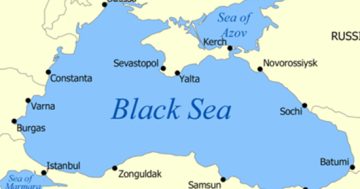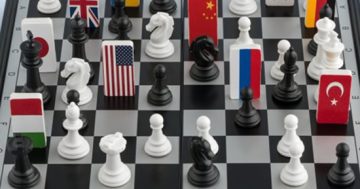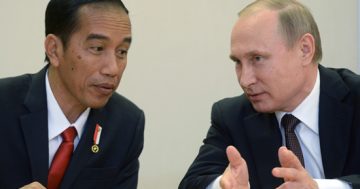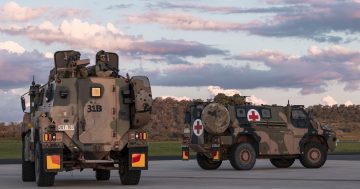Russia and Myanmar are both run by strongmen who have judged that overwhelming violence can beat their opponents into submission. Matt Killingsworth and Nicholas Farrelly* say responding to this, and supporting democratic voices to prevail, requires careful attention to the values we hold.
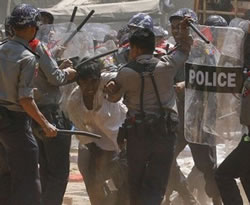 In February 2021 Myanmar’s top military brass dusted off their old playbook for a coup d’état, rolling out the tanks and commando squads.
In February 2021 Myanmar’s top military brass dusted off their old playbook for a coup d’état, rolling out the tanks and commando squads.
They sought to decapitate the democratically-elected leadership and re-install themselves as supreme leaders.
Within hours the generals, led by Senior General Min Aung Hlaing, were back in charge.
Over the months that followed, the world watched in horror as conditions deteriorated, with thousands locked up and countless more displaced or forced into hiding.
The battle against this reinvigorated authoritarianism also ramped up quickly.
Outgunned by one of South-east Asia’s largest military forces, opposition groups needed to get their hands on weapons and other supplies.
Myanmar’s anti-coup fighters have limited access to better weapons, relying mostly on what circulates in the region’s black markets.
By contrast, Myanmar’s armed forces benefit from deep connections with foreign suppliers of sophisticated military equipment.
At the top of that list is Russia, under Vladimir Putin, which has offered formidable weapons systems to Myanmar’s military elite.
Those same models of Russian equipment are now battling it out in the torrid war unfolding in Ukraine, where Putin has demonstrated his contempt for the prevailing international order.
In the Ukraine War, Western democracies have been much more energetic in their supply of weapons, intelligence and training.
Ukrainian President Volodymyr Zelensky, with a democratic mandate to beat back the Russian invasion, faces none of the prickly questions of legitimacy facing Myanmar’s opposition forces, only some of which have ever stood for election.
What the situations have in common, however, is a profound miscalculation — in both cases a mistake made by strongmen convinced that, through force of will and overwhelming violence, they will beat their opponents into submission.
For NATO, and for the European Union, the situation has served to strengthen both institutions.
The EU was deeply divided after Brexit, and facing internal crises generated by recalcitrant member States such as Poland and Hungary.
The EU was also, to differing degrees, still suffering from expansion fatigue. Yet since Russia’s invasion of Ukraine it has offered to fast-track Ukraine’s membership, with only muted opposition from Austria, Germany, and Hungary.
A united Europe has also been able to pressure Germany, which had a historically-informed policy of never sending weapons to conflict zones, to reverse that policy.
Similar pressure has also led Germany, which has a deep (and often criticised) reliance on Russian energy, to announce it will cease its import of Russian gas and oil by the end of the year.
NATO, reeling and on the brink of collapse after four years of the United States Presidency of Donald Trump, now appears stronger than at any time since its post-Cold War enlargement.
The most visible sign is the decision by Finland and Sweden to apply for membership, both citing Russia’s belligerence.
Russia claimed Ukraine’s move toward EU and NATO membership justified its invasion. Now, in what appears to be a disastrous miscalculation by Putin, the EU and NATO will be on Russia’s doorstep anyway.
For ASEAN and Myanmar there is much less to say about the diplomatic manoeuvring.
While in April 2021 ASEAN agreed a five-Point Consensus to manage the crisis, there has been little progress over the past year.
ASEAN struggles whenever internal conflicts, like in Myanmar, test its commitment to non-interference in domestic affairs.
Both situations involve humanitarian catastrophes, which would seemingly make it possible for a Responsibility to Protect (R2P) intervention.
R2P, although established with great fanfare in 2005, will almost always struggle against Security Council vetoes. In both Ukraine and Myanmar, it is a non-starter.
Similarly, the International Criminal Court, set up specifically to hold perpetrators accountable for “crimes of concern to the international community as a whole”, has limited prospects.
Myanmar and Russia are not signatories to the Rome Statute, and efforts to refer Myanmar to the court via the Security Council have been stymied by China.
While the court has been able to investigate crimes in Myanmar via Bangladesh, and open an investigation in Ukraine, both investigations will be hampered by lack of cooperation from Russian and Myanmar officials respectively.
Are the ‘bad guys’ winning? In the cases of Myanmar and Russia, it appears so.
How can these autocrats be managed by the ‘good guys’ when existing diplomatic or judicial mechanisms are limited in their effectiveness?
Indeed, the rise of illiberalism in parts of the EU; the events of 6 January 2021 in the United States, and the British Government’s ‘constitutional crisis’ are all celebrated by autocrats as inherent weaknesses within liberal democracies.
So, what is our best response?
The moral response — in the face of our own institutional shortcomings — is for our democracies, wherever they are, to be better democracies and to make sure our friends, whether in Ukraine, Myanmar or elsewhere, know we won’t leave them to fight alone.
*Matt Killingsworth is a Senior Lecturer in International Relations at the University of Tasmania. He tweets at @mevanworth. *Nicholas Farrelly is Professor and Head of Social Science at the University of Tasmania. He was previously Associate Dean of the College of Asia and the Pacific at the Australian National University.
This article first appeared on the website of the Australian Institute of International Affairs.

